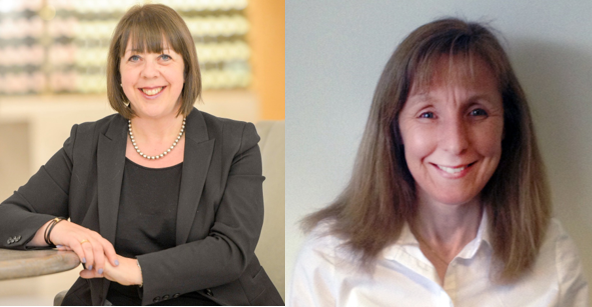The Role of Our Healthcare Dietitians
Medirest Dietitians, Maxine Cartz and Helen Ream, were recently named on the British Dietetic Association Roll of Honour for being Covid-19 Community Heroes, for their work supporting the NHS over the past 12 months.
They have over 40 years of experience working in food service dietetics, between them and they support Compass’ healthcare division to lead on food provision for patients and care home residents. They develop resources to support teams involved in patient dining and ensure the nutritional suitability of recipes and menus to meet the needs of all patients, including those with special dietary needs including food allergies, higher energy and protein and swallowing difficulties.
They tell us why their roles are integral to supporting our healthcare partners:
What is your role and how is it different to other dietitians that work in hospitals?
Helen Ream: Most dietitians who work in hospitals will see individual patients and work with them to support their individual dietary needs, both in hospital and when they get discharged home. In our role we work within the food service dietetics to develop menus and recipes that support the dietary needs of large groups of patients, to ensure the food that is available to patients is both enjoyable and supports them to meet their dietary needs.
Maxine Cartz: We liaise closely with Trust dietitians on all catering and dietetic issues. Much of what we do is menu planning for both therapeutic and standard menus. To do this we work with chefs in our hospitals and care homes and also with the development team at our Cuisine Centre.
We are also involved in working alongside our procurement division, Foodbuy, to ensure that products appearing on our menus are suitable with regards to nutritional content. Our role is overarching, and we work closely with our catering colleagues at site level, answer technical queries and also organise, plan and carry out training sessions for catering and ward host/hostess teams on nutrition and dietetic issues, often in consultation with Trust dietitians.
What benefits can you bring to the patients you serve?
Helen Ream: Our role can make a positive difference to patient care, through the food we provide. For example we can work with our catering teams to deliver best practice, such as serving enough protein in our meals, that we don’t use too much salt and that the range of desserts on offer are suitable whether you want something low in fat and sugar, or need something comforting with lots of calories in it, if your appetite is poor.
Maxine Cartz: We act as advocates for the patients, in terms of diet and we have specialised knowledge which we base all our decisions on. We have the skills to oversee the whole catering service to ensure that the meal service is carried out correctly. Food is a critical part of patient care and we ensure that our teams do all they can to ensure that patients experience optimal intake and pleasure from our meals.
What’s key to success?
Helen Ream: Working effectively and together with our colleagues and clients in all roles across healthcare, we help bring together all viewpoints in order to achieve a service we can all be proud of.
Maxine Cartz: Having a flexible approach is important. Each ward in a hospital will have its own routines and procedures. We bring standardisation and good practice in what we do, but we know that each hospital and care home is different so we must be open minded and look for solutions to suit each scenario.


